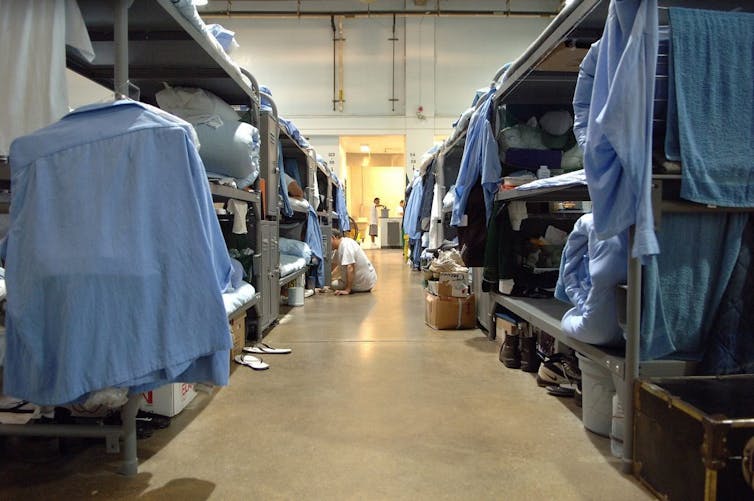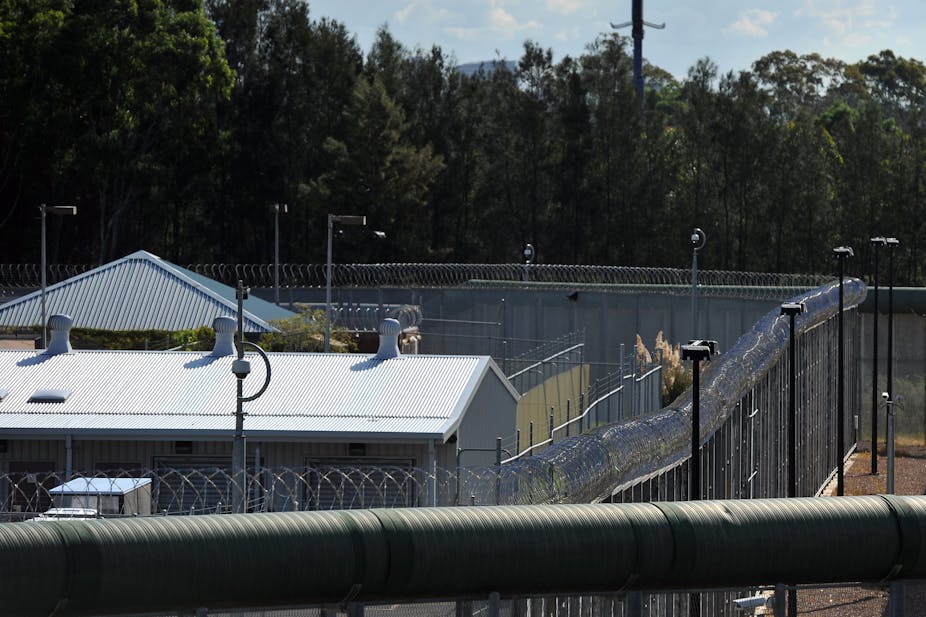Australia spends billions of dollars every year on our prison system yet the number of those being sent to jail keeps increasing.
Is this sustainable? Simple logic would suggest not, unless we want to start actively cutting health and education budgets to warehouse criminals.
Wouldn’t we better off spending that money more wisely, trying to prevent people ending up in jail rather than providing facilities when they are sentenced to custody?
“Justice reinvested” may sound like a new term here in Australia, but the concept is one which I have been urging for more than twenty years.
It is built on the understanding that our present criminal justice system, and especially our prisons, are not working effectively in the service of the wider community and is failing in its attempts to maintain community safety and to build community harmony.
Given expenditure on Australian prisons is now approaching $2 billion a year, it is also a particularly expensive operation. Consequently the “justice reinvestment” movement proposes that it is now time to consider more effective and more economically viable alternatives.
So “justice reinvestment” is about not only reinvesting the money that we are currently spending on the construction and operation of an expanding prison network in more effective programs of crime prevention and control, but also ensuring that we protect the human resources that have been substantially impacted by this expansion: particularly our indigenous population, migrant and refugee communities, the mentally ill, the homeless and persons from low income families and neighbourhoods.
Surprisingly this movement has been given momentum by some of the more conservative political forces operating in the United States, namely Republican representatives in Texas.
The movement began in California in 1988. When I visited I found evidence of the beginning of this movement but it was located more in the prison reform groups and the human rights organisations.
They were already using the argument that the present direction and programs of the criminal justice system were not effective and were increasingly eating up a greater percentage of the State’s annual revenue.
Since that time, of course, the American criminal justice system – led by California and other states including Texas – has expanded beyond belief to the current situation where one in 100 American citizens is housed in a correctional facility or under post release correctional supervision in the community.

Here in Australia, over the last twenty years, we have been following a very similar path, and our national prison population has been increasing at three times the rate of the national population, despite the fact that serious crime has not significantly increased in most categories over this same period of time.
During the last fifteen years I worked closely with Professor Tony Vinson of the University of Sydney in national research studies that mapped social disadvantage by postcode.
This research discovered extraordinarily high correlations between levels of social disadvantage and imprisonment. It pointed to the frightful scenario that has been developing in Australia that your postcode could become determinative of your future, in terms of poor education, lack of participation in the job market and eventual engagement with the criminal justice system.
Of course there are many extraordinary examples of individuals, both indigenous and non-indigenous, who grew up in the most disadvantaged neighbourhoods and who are regarded as successful. But the postcode research pointed to the fact that there are hundreds of thousands of other examples where this was not the case.
A pattern was emerging in the last ten years in Australia where some communities were “dropping off the edge”. Primary school teachers were beginning to predict with confidence which of their students would end up serving lengthy periods of their lives in high security prisons. This should never be tolerated in Australia, especially during a time of generally high economic growth and development.
That is why the concept of “justice reinvested” makes so much sense when we consider the future directions of Australian society.
The current Senate Inquiry receiving submissions and holding public inquiries about “justice reinvested” is a critically important opportunity to reinforce that point of view.
With limited financial resources in Australia, we cannot afford to continue repeating the mistakes of the past and relying on the criminal justice system to deal with major social problems.
There are more effective and less intrusive solutions available and these approaches are capable of diverting vulnerable citizens away from our criminal justice system in a way that brings real healing and builds greater community cohesion.
Pay attention to the findings of this current Senate Inquiry and let us hope that its recommendations to be passed down in June of this year do not get lost in the forthcoming Federal election. It is too important an opportunity to let pass.

